di p. Aris Miranda
Certainly, the heroic offering of life, inspired and sustained by charity, expresses a true, complete, and exemplary imitation of Christ, and thus is deserving of that admiration that the community of faithful customarily reserves to those who have voluntarily accepted the martyrdom of blood or have exercised Christian virtues to a heroic degree. (Francis, Motu Proprio, 2017)
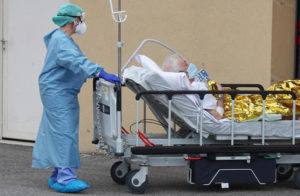 It has been more than a year since the world has been stalled due to the pandemic. This situation has taught us to calibrate all our regular plans and programs and reconsider our decisions given what is essential as the minimum standard. No one has ever thought that we are undergoing a throwback of the 20th century global pandemics of the Spanish flu, HIV/AIDS, and Ebola with the current advancement of science. Everybody was scared initially due to the unknown mode of transmission and the lack of vaccines to prevent and neutralize the virus. However, at present, we unveiled the mystery behind these viruses, and the invisible enemies have been defeated. Then human activities regained their ordinary course, and human beings became complacent.
It has been more than a year since the world has been stalled due to the pandemic. This situation has taught us to calibrate all our regular plans and programs and reconsider our decisions given what is essential as the minimum standard. No one has ever thought that we are undergoing a throwback of the 20th century global pandemics of the Spanish flu, HIV/AIDS, and Ebola with the current advancement of science. Everybody was scared initially due to the unknown mode of transmission and the lack of vaccines to prevent and neutralize the virus. However, at present, we unveiled the mystery behind these viruses, and the invisible enemies have been defeated. Then human activities regained their ordinary course, and human beings became complacent.
The advancement of science brought global confidence and incentive as far as human activities are concerned. The “business as usual mentality” becomes the standard paradigm of human activity, which unknowingly devastates communities, the environment, and our climate. Even in the spiritual milieu, the concept of martyrdom and holiness in the world of health underwent nuancing. Some are even skeptical that today the path to martyrdom in charity is less likely to happen considering the level of health protection and prevention against probable cases of death caused by viral infection.
Does it make sense to talk about the heroic act of exercising the Christian virtues to its highest expression, such as martyrdom? Looking at the Camillian heritage and tradition of the martyrs of charity, what lessons still keep them relevant to our situation today?
Not until the COVID 19 pandemic, the world acts as the master of everything found under it. The coronavirus pandemic has shaken the world of its position again. Those who humanity looked up as the most powerful and highly developed countries could not liberate themselves from the tentacles of the “invisible enemy.” These countries claimed the highest casualties of the coronavirus infection, which is unprecedented. Worst of all, it is drastically hitting the most vulnerable population, unveiling the gross injustice committed against humanity where resources are scarce and deprived.
The preceding facts overlay the context and content of our commemoration and reflection on the feast of the Camillian Martyrs of Charity on the 25th of May, the birth of St. Camillus de Lellis. To make this feast a relevant commemoration of the perfect and heroic act of charity of the men and women in the Church, three significant characteristics of the martyrs of charity are worth considering, namely, the knowledge of the social situation, internal disposition of the conscious individual, and the promptings of the Holy Spirit.
Knowledge of the social situation
The capacity to read the “signs of the times” is not only a spiritual exercise but, above all, a commitment to live the call of the “church that goes forth” (Chiesa in uscita) of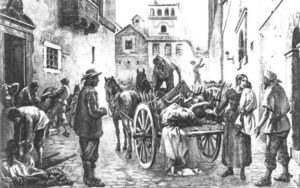 Pope Francis. It refers to the individual’s interior disposition, which freely inclines to personal and communitarian initiatives towards the suffering humanity. It is a challenge to immerse into the veiled situation of the suffering humanity, to encounter the less desirable at the margins of our society, and smell the odor of hardships and daily life struggles. It emulates the famous entry of St. Camillus to Milan at the height of the plague, who was considered by the spectator a “dead man walking.” It also reverberates the excitement and enthusiasm of the Camillian martyrs of charity. They set on foot joyfully towards the colonies of the plague-stricken people without retorting any question and resistance.
Pope Francis. It refers to the individual’s interior disposition, which freely inclines to personal and communitarian initiatives towards the suffering humanity. It is a challenge to immerse into the veiled situation of the suffering humanity, to encounter the less desirable at the margins of our society, and smell the odor of hardships and daily life struggles. It emulates the famous entry of St. Camillus to Milan at the height of the plague, who was considered by the spectator a “dead man walking.” It also reverberates the excitement and enthusiasm of the Camillian martyrs of charity. They set on foot joyfully towards the colonies of the plague-stricken people without retorting any question and resistance.
Amid the coronavirus pandemic, we scored contagions among our seminarians and confreres present on the battlefield with their arms of generosity and charity. They didn’t allow fear to overcome and immobilize them. As the number of active cases spiraled in their respective countries, they came together. They organized themselves to mitigate the impact of the virus against the most deprived of resources and protection. They reached out to them to better understand how to bring comfort to their restless and tormenting condition.
Internal disposition of a conscious individual
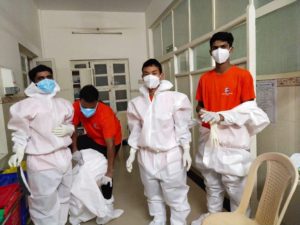 One of the criteria for the offer of life, “so that it be valid and effective for the beatification of a Servant of God, is a free and voluntary offer of life and heroic acceptance propter caritatem of a certain and untimely death.” (Pope Francis Motu Propio, 2017). The death of the martyrs of charity is a concrete expression of human freedom. While they were aware of the calculated risk and danger of administering to the plague-stricken areas, they disposed themselves at the service of the people who called for their help with freedom. Everyone divulged their joy and enthusiasm when they heard their names were enlisted to help the plague-affected people.
One of the criteria for the offer of life, “so that it be valid and effective for the beatification of a Servant of God, is a free and voluntary offer of life and heroic acceptance propter caritatem of a certain and untimely death.” (Pope Francis Motu Propio, 2017). The death of the martyrs of charity is a concrete expression of human freedom. While they were aware of the calculated risk and danger of administering to the plague-stricken areas, they disposed themselves at the service of the people who called for their help with freedom. Everyone divulged their joy and enthusiasm when they heard their names were enlisted to help the plague-affected people.
What could have been the precise motivation for this joyous acceptance of the invitation to go into the field of death and horrors? Others speculate that this is in exchange for a greater good to be enjoyed in the Kingdom of God. This speculation deserves proof and deeper investigation. However, the pure motivation behind this is that they were all conscious from the very beginning of the vocation they freely choose even in danger of death. It was not their personal goal to share in the life of eternal bliss but their free and conscious internal disposition.
Seeing images of the Camillian seminarians and confreres don with PPEs in the hospital wards and the poor communities distributing relief goods are actual testimonies of the legacy of the Camillian martyrs of charity. All of them have joined the team, free from any pressures or coercion.
Promptings of the Holy Spirit
“The attribution of martyrs of charity to our religious in its broad sense is, therefore, to be understood first of all in the fact that it is the Spirit who has made them capable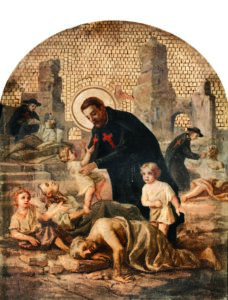 of ‘giving living witness to their faith’ which they have expressed through merciful charity towards the sick. But it is also important to underline that in them is expressed the will to ‘lose life’ for the suffering neighbor.” (Giuseppe Cina, MI).
of ‘giving living witness to their faith’ which they have expressed through merciful charity towards the sick. But it is also important to underline that in them is expressed the will to ‘lose life’ for the suffering neighbor.” (Giuseppe Cina, MI).
“The formation of charity did not come to Camillus only from a natural disposition. The immense charge that emanated from him when it came to the service of the sick, and that was able to drag the community to a feverish and exhausting activity, especially in exceptional times of calamity, was above all the result of an inner action; of the Spirit.”
The human free will is incapable of moving the person to do things that are significantly beyond conventional or engage in noble undertakings that are undesirable by many, that is, to compromise personal safety. A soldier is different from the religious because his actions abide by his superior’s command no matter what the circumstances. However, a religious accepts the inner promptings of the Spirit. This inner voice encourages him/her to act by the needs of others convinced of his unique vocation.
The radical commitment to discipleship of Christ enumerates the applicable principles of the preferential love for those marginalized by society; the indispensable work to keep oneself inwardly free without yielding to the enticements of a worldly hostile way of life, which extinguishes the anxiety for the promotion of the Kingdom; the willingness to be open to the signs of the times that invite to new forms of apostolic presence; the progressive purification of the motivations that guide us in the exercise of the ministry to make them more and more evangelical; the ability to witness joyfully that it is by losing one’s life that one gain it. (cf. General Disposition). These are all the promptings of the Holy Spirit.
With these three characteristics of the testimony of the martyrs of charity, we can assure to perpetuate their legacies today following the local situation and context where the Camillians are called to live and respond.








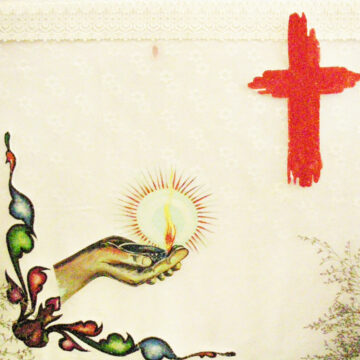
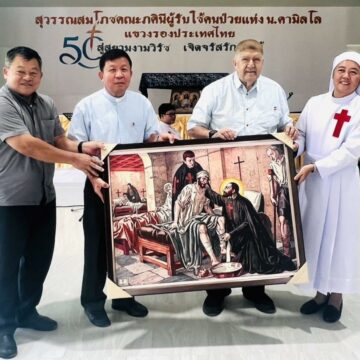
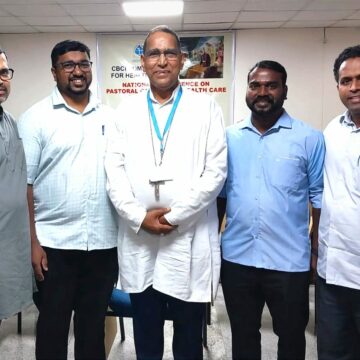


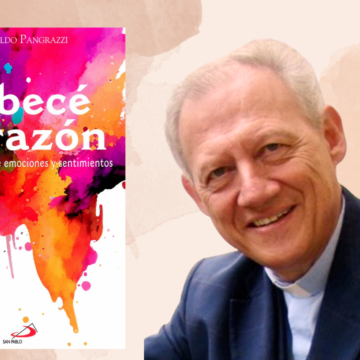
Camillians on Facebook
Camillians on Twitter
Camillians on Instagram